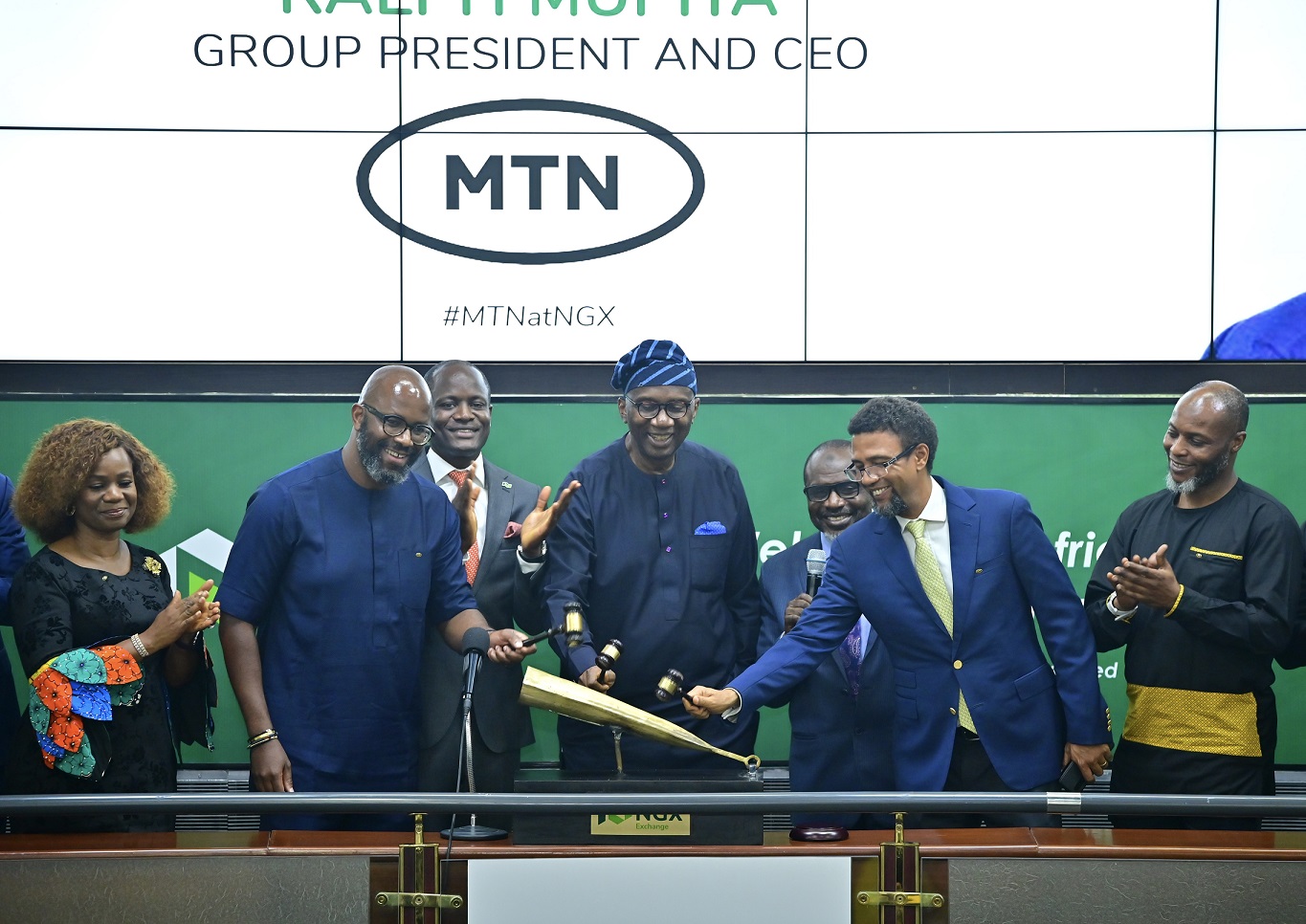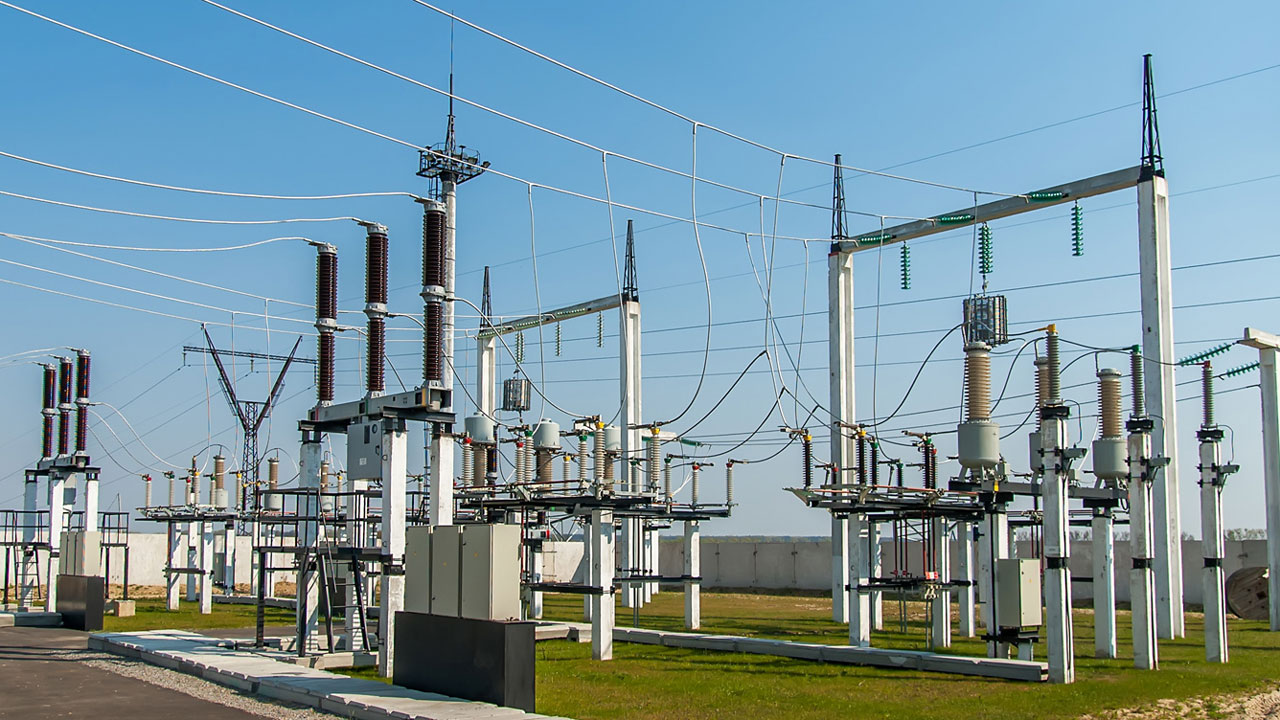Economy
KPay Secures Record USD55 Million, Marking 2024’s Largest Series A Fundraise Globally in the Payments Sector
KPay strengthens its position as the leading regional platform for merchants to simplify financial management and streamline business operations. The investment by Apis Growth Markets Fund III and Apis Global Growth Fund III will accelerate KPay’s trajectory to support one million merchants across Asia in the next five years
HONG KONG/SINGAPORE – Media OutReach Newswire – 3 December 2024 – KPay Group (KPay), a one-stop financial management and business operations platform, today announced the successful completion of its first institutional funding round, raising a record USD 55 million, the largest Series A globally in the payments sector in 2024[1].

This landmark investment was led by Apis Growth Markets Fund III and Apis Global Growth Fund III (both of which Apis Partners LLP serves as the portfolio manager for), validating KPay’s strategic vision, market leadership and ambitious growth trajectory. UK-based Apis Partners is an ESG and Impact-native global private equity asset manager which manages or advises on total assets under management of USD 2.3 billion. This investment will not only accelerate KPay’s existing trajectory but also provide the basis for its aggressive expansion plans across Emerging Asia.
With fintech funding in Asia Pacific hitting a six-year low[2] in H1 2024, KPay’s record-breaking Series A stands out as a testament to the company’s execution excellence and opportunity set ahead. The successful funding also demonstrates investors’ appetite to back companies – like KPay – which have a proven playbook to drive expansion across Asia and can do so in a capital efficient manner. Notably, up until this Series A round, the company had yet to raise venture capital funding to deliver growth.
The investment from Apis Partners includes a commitment by KPay to expand its presence across key Asian economies, including Indonesia, the Philippines, Malaysia, Thailand, and more. KPay will leverage the capital to drive both organic growth and strategic mergers and acquisitions. This partnership aligns closely with the shared vision of Apis and KPay to drive meaningful change, recognizing the critical role of SMEs, which account for 55.8%[3] of total employment in Asia, and in turn acknowledges that supporting SME growth fosters broader economic development and strengthens regional economies.
Founded just over three years ago, KPay has achieved a remarkable 166% revenue CAGR during this period, operating across Hong Kong, Singapore and Japan. The company has built a one-stop solution to facilitate the financial, operational and digital transformation for merchants of all sizes, and is already serving more than 45,000 merchants in the region. With its open-architecture ecosystem, KPay currently partners with over 150 SaaS providers, banking institutions, and financial services firms and plans to double its partnerships to support even more businesses across Asia in their financial and digital transformation journey.
Davis Chan, Co-founder and CEO of KPay, says, “I am incredibly proud of this financial milestone our team has achieved. We are excited to use this funding to not only expand our existing markets’ SME merchant base, but also broaden our reach into new merchant industry categories, merchants of all sizes, and merchants operating in other underserved markets across Asia. This will bring us closer to our ambitious goal of supporting one million merchants over the next five years”
Christopher Yu, President and CFO of KPay, adds, “Securing this funding gives us financial strength and flexibility to enhance our product innovation, go-to-market speed, customer experience, and operational excellence. All of this is with our merchants in mind, in making it even simpler, smarter, and more cost-effective for them when using KPay’s services. To do this, we need to continue to attract the best partners and global talent to join us, who share the same ambition to work alongside us to achieve the company’s vision and mission.”
Matteo Stefanel, Co-Founder and Managing Partner at Apis Partners, comments: “We are thrilled to lead this investment in KPay, a unique company demonstrating remarkable growth under the leadership of seasoned third-time founders and an exemplary management team. As one of the most active global fintech investors in growth-stage companies, Apis is eager to bring our domain expertise to support this exciting phase of KPay’s journey. With this combination of both financial strength and execution excellence, we look forward to a long-term partnership with KPay, to support their regional expansion, and spearheading next-gen financial management solutions in Asia’s diverse payments and software sector.”
Udayan Goyal, Co-Founder and Managing Partner at Apis Partners, adds: “As a financial services-focused investor, we recognise the unique value KPay brings to the market through its commitment to empowering merchants with accessible, impactful financial tools. This investment aligns perfectly with our ESG and Impact mandate to foster sustainable and inclusive growth within the financial sector, promoting the democratisation of finance, embedded finance and the deepening of the digital economy. We look forward to supporting KPay as it scales, helping the company deliver meaningful financial solutions across Asia.”
Hashtag: #KPay #KConnect #KFund #SME #funding #fundraising #privateequity #payin #payout #finance #apispartners
The issuer is solely responsible for the content of this announcement.
About KPay Group
KPay Group (“KPay”) is a leading fintech company dedicated to empowering businesses of all sizes with simple, smart, seamless and secure technology solutions. Serving over 45,000 merchants across Hong Kong, Singapore, and Japan, KPay is building a one-stop platform to support merchants in financial management, business operations and digital transformation across Asia, unlocking new growth potential for businesses. For the latest updates, follow us on ![]() LinkedIn or visit our website at
LinkedIn or visit our website at ![]() www.kpay-group.com.
www.kpay-group.com.
About Apis Partners
The Apis Group (“Apis”) is an ESGI-native private equity and venture capital asset manager that supports growth-stage financial services and technology businesses globally by providing them with catalytic growth equity capital. Collectively Apis, through its team of around 40 professionals with deep industry expertise, manages or advises on total AUM of c.US$2.3 billion.
Headquartered in London, Apis has representation in seven countries globally. Apis is highly conscious of the impact that the provision of growth capital for financial services and technology businesses in global markets can achieve, and as such, financial inclusion and financial wellness are core tenets of Apis’ impact investment approach. ![]() www.apis.pe
www.apis.pe
![]()
Economy
Investors Gain N333bn Trading Nigerian Equities

By Dipo Olowookere
A 0.31 per cent gain was recorded by the Nigerian Exchange (NGX) Limited on Tuesday, helped by renewed bargain-hunting by investors, with the year-to-date return extending to 6.61 per cent.
It was observed that the growth achieved by Customs Street yesterday was supported by the banking and the industrial goods indices, which went up by 1.32 per cent and 0.69 per cent apiece.
They offset the losses recorded by the three other sectors, with the insurance counter down by 1.32 per cent, the consumer goods segment down by 0.23 per cent, and the energy space down by 0.17 per cent.
At the close of business, the All-Share Index (ASI) increased by 516.94 points to 165,901.57 points from 165,384.63 points and the market capitalization appreciated by N333 billion to N106.495 trillion from N106.162 trillion.
The market breadth index was positive yesterday after the bourse ended with 35 price gainers and 34 price losers, representing bullish investor sentiment.
The quartet of Industrial and Medical Gases (IMG), Union Dicon, Zichis, and Austin Laz chalked up 10.00 per cent each to sell for N34.65, N9.90, N5.06, and N4.07, respectively, while RT Briscoe appreciated by 9.95 per cent to N9.50.
On the flip side, Omatek lost 10.00 per cent to trade at N2.43, Cutix also fell by 10.00 per cent to N3.15, Union Homes shrank by 9.95 per cent to N76.90, Sunu Assurances declined by 9.94 per cent to N4.62, and Deap Capital crashed by 9.93 per cent to N7.62.
During the trading day, 736.4 million stocks worth N24.7 billion exchanged hands in 46,026 deals compared with the 762.8 million stocks valued at N18.4 billion traded in 55,374 deals a day earlier, indicating a rise in the trading value by 34.24 per cent, and a slip in the trading volume and number of deals by 3.46 per cent and 16.88 per cent apiece.
The activity chart was led by volume on the second trading session of the week by GTCO with 65.9 million equities valued at N6.5 billion, Chams transacted 55.7 million shares worth N249.8 million, Custodian Investment traded 49.8 million stocks for N2.2 billion, Universal Insurance sold 36.1 million equities valued at N51.5 million, and Zenith Bank exchanged 35.4 million shares worth N2.6 billion.
Economy
Oil Market Rises 2% on Fresh Iran-US Confrontation

By Adedapo Adesanya
The oil market was up by nearly 2 per cent on Tuesday after the United States shot down an Iranian drone approaching an aircraft carrier and armed boats in the Strait of Hormuz, stoking concerns talks aimed at de-escalating US-Iran tensions could be disrupted.
This action caused the Brent futures to rise by $1.03 or 1.6 per cent to $67.33 per barrel, as the US West Texas Intermediate (WTI) futures jumped by $1.07 or 1.7 per cent to $63.21 a barrel.
Both crude benchmarks dropped more than 4 per cent on Monday after President Donald Trump said Iran was seriously talking with America.
However, the US military shot down an Iranian drone that “aggressively” approached the Abraham Lincoln aircraft carrier in the Arabian Sea on Tuesday.
In the Strait of Hormuz between the Persian Gulf and the Gulf of Oman, Iranian gunboats approached a US-flagged oil tanker in what US and British maritime security sources describe as a failed attempt to interfere with the vessel’s transit.
Members of the Organisation of the Petroleum Exporting Countries (OPEC) including Saudi Arabia, Iran, the United Arab Emirates, Kuwait and Iraq export most of their crude via the strait, mainly to Asia. The Strait of Hormuz, through which roughly a fifth of the world’s oil supply passes, remains Iran’s most obvious pressure point.
Despite the latest development, the UAE urged Iran and the US on Tuesday to use the resumption of nuclear talks this week to resolve a standoff that has led to mutual threats of air strikes. Iran, meanwhile, is demanding that talks be held in Oman not Turkey.
In Ukraine, President Volodymyr Zelenskiy accused Russia on Tuesday of exploiting a US-backed energy truce to stockpile munitions, and using them to attack Ukraine a day before peace talks. This boosted worries that Russia’s oil would remain sanctioned for longer.
On Monday, President Trump announced a trade deal with India, one of the world’s biggest economies and oil importers, on Monday to cut tariffs to 18 per cent from 50 per cent in exchange for the country halting Russian oil purchases and lowering trade barriers.
The American Petroleum Institute (API) estimated that crude oil inventories in the US decreased by 11.1 million barrels in the week ending January 30. Crude oil inventories decreased by 247,000 barrels in the week prior.
Official data from the US Energy Information Administration (EIA) will be published later on Wednesday.
Economy
AFC Commits Support to Transformative Reforms in Nigeria’s Power Sector

By Adedapo Adesanya
The Africa Finance Corporation (AFC), the continent’s leading infrastructure solutions provider, has reiterated its commitment to playing a pivotal role to support transformative reforms in Nigeria’s power sector.
This is as it act as co-Financial Adviser to the Nigerian government on the successful issuance of the recent N501 billion inaugural tranche under the Presidential Power Sector Financial Reforms Programme (PPSFRP), as part of the N4 trillion Power Sector Bond Programme, aimed at resolving over a decade of legacy debt obligations in Nigeria’s electricity supply industry and restoring financial stability across the sector.
AFC provided comprehensive financial advisory services to the federal government, including the design of the Programme’s negotiation strategy framework, support in negotiating and executing Settlement Agreements with Power Generation Companies (GenCos), and structuring the bond issuance. Working in partnership with CardinalStone Partners as co-Financial Advisers, AFC deployed its deep sector expertise and strong local market knowledge to deliver the landmark transaction.
The programme was overseen by the Presidential Power Sector Debt Reduction Committee (PPSDRC), with technical leadership from the Office of the Special Adviser to the President on Energy, and implemented through NBET Finance Company Plc, a special purpose vehicle of Nigerian Bulk Electricity Trading Plc (NBET). Proceeds from the issuance will be used to settle verified, overdue receivables owed to GenCos for electricity supplied between February 2015 and March 2025, injecting liquidity into the power sector and extinguishing long-standing claims.
Commenting on AFC’s involvement, Mr Banji Fehintola, Executive Board Member and Head, Financial Services at Africa Finance Corporation, said: “The successful issuance of the inaugural tranche under the Power Sector Bond Programme underscores AFC’s commitment to supporting transformative reforms in Nigeria’s power sector. By resolving long-standing liquidity challenges and restoring confidence among investors and operators, this transaction lays the foundation for sustainable growth and improved electricity supply across the country.”
When fully implemented, the programme is expected to impact approximately 5,398MW of electricity generation capacity by Nigerian GenCos and finalise settlement for 290,644.84GWh of electricity billed since 2015. It will also strengthen companies serving about 12 million active registered customers, creating a solid platform for new investments in capacity enhancement and expansion.
-

 Feature/OPED6 years ago
Feature/OPED6 years agoDavos was Different this year
-
Travel/Tourism9 years ago
Lagos Seals Western Lodge Hotel In Ikorodu
-

 Showbiz3 years ago
Showbiz3 years agoEstranged Lover Releases Videos of Empress Njamah Bathing
-

 Banking8 years ago
Banking8 years agoSort Codes of GTBank Branches in Nigeria
-

 Economy3 years ago
Economy3 years agoSubsidy Removal: CNG at N130 Per Litre Cheaper Than Petrol—IPMAN
-

 Banking3 years ago
Banking3 years agoSort Codes of UBA Branches in Nigeria
-

 Banking3 years ago
Banking3 years agoFirst Bank Announces Planned Downtime
-

 Sports3 years ago
Sports3 years agoHighest Paid Nigerian Footballer – How Much Do Nigerian Footballers Earn











